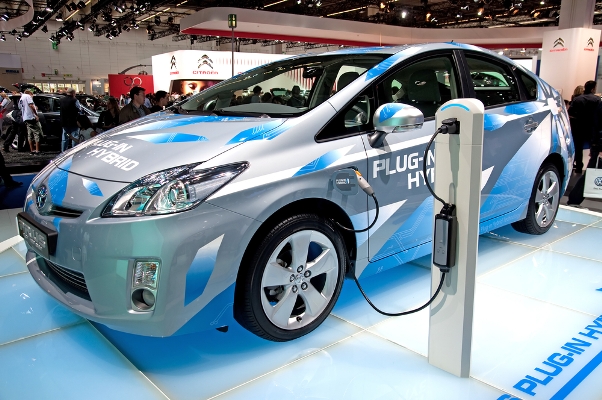LAHORE: Local car manufacturers have expressed ‘shock’ and disappointment at the government’s introduction of the first electric vehicle policy.
A Japanese car manufacturer in Pakistan, while talking to The Express Tribune, said “The approval came as a shock to domestic automobile players whose consent was not sought by government officials on this key issue.”
He further added that local players are in favour of an electric vehicle policy but not at the expense of the domestic industry.
The federal cabinet approved the electric vehicle policy on Tuesday under which 100,000 cars would be imported over a period of five years. The government earlier shared the vision to convert at least 30% of vehicles into electricity-powered by 2030 and aimed to achieve the target by charging only 1% general sales tax on the import of electric vehicles.
Moreover, registration of such vehicles will be free of cost, which will make them affordable for a large number of people.
“We were informed by government authorities that an electric vehicle policy was under consideration and stakeholders would be consulted before its finalisation,” said Hyundai Nishat Motor Chief Financial Officer Norez Abdullah while talking to The Express Tribune.
He added that the company was a new entrant into the Pakistan market and had invested heavily under the Automotive Industry Development Policy 2016-21.
“Until yet, we have not collected even a single rupee out of our investments,” he said. “The overall scenario of the local automobile industry is not encouraging and the government has introduced a new policy.”
Pakistan Association of Automotive Parts and Accessories Manufacturers (Paapam) Chairman Muhammad Akram said with an active auto development policy in place, the new electric vehicle policy would only create confusion, claimed the report.
Earlier, Adviser to Prime Minister on Climate Change Malik Amin Aslam held a meeting with Indus Motor CEO Ali Asghar Jamali and promised to take all stakeholders on board prior to approval of the policy, the report said.




































Compliments the honorable to PM on the “Climate Change” a wonderful gift to the nation to a fresh breath from smoke, pollution for the ICE (Internal Combusion Engine) technology to the EV, Hybrid, which has invaded the world auto. The car will plague Pakistan with smoke, imported crude oil local refined fuels, which are very costly, and will drag Pakistan to Climate Change threats with the conventional cars. My suggestion to the honorable Minister to please consider permit/allow the ICE cars/mobility transport for Hybrid which will convert all ICE engines to Hybrid by an add-ons box that will make the car use only on EV. Pakistan is now in the Digital Transport era. Best wishes
“A Japanese car manufacturer in Pakistan, while talking to The Express Tribune”
The level of reporting by Profit Pakistan, that they have discovered something which isn’t available in Pakistan! There is no car manufacturer here, only assemblers. The ones who all import CKD kits from Japan and install some third class windows, lights and tyres in the low quality junk they sell.
The manufacturers are expressing “shock” at the new EV policy. Why when nearly every pragmatic government in the world is doing the same with pollution and global warming at record levels. It’s is the government’s job to formulate and institute policy for the masses not for car manufacturers to influence policy for their benefit solely. The target is to convert 30% of vehicles to be EVs by 2030. That’s 10 years! In that time the required number of cars which will be in the 100s of thousands more than today with population, demographic and economic changes. You have plenty of time to adapt and the multinational automobile manufacturers that you are aligned with, have EV, Hybrid or Hydrogen options.
Why should consent of privately operated and government backed (wrt policies) monopolies be sought for national policies?